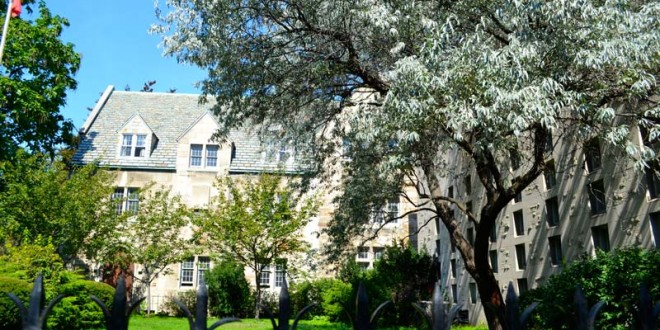Deviance | “Am Rande seiner selbst”
Annual Graduate Conference
Department of Germanic Languages & Literatures
September 28-29, 2019, University of Toronto
Download CfP here.
“Das Gedicht heute behauptet sich am Rande seiner selbst; es ruft und holt sich, um bestehen zu können, unausgesetzt aus seinem Schon-nicht-mehr in sein Immer-noch zurück. Das Gedicht ist einsam. Es ist einsam und unterwegs. Das Gedicht will zu einem Andern, es braucht dieses Andere, es braucht ein Gegenüber. Es sucht es auf, es spricht sich ihm zu.”
Paul Celan
What is deviance and how is it problematized across German and Yiddish literary and cultural studies, and history? Is deviance problematic? What is the difference between deviant narratives and narratives of deviance? Deviance is often associated with the « abnormal » and is therefore located on the margins of social life. It can, for example, relate to materiality, sexuality, or criminality. It is important to reconsider this concept as deviance undeniably affects our perception of society and of the Other. What is striking about the quote by Celan is how the concept of connection is being addressed: “Das Gedicht will zu einem Andern, … es braucht ein Gegenüber.” It shows how specific genres or types of texts seemingly only work in isolation—as deviant texts—and through an attempt to reach out for an (imagined) counterpart. To be deviant perhaps means that there is a lack of connection and coherence, or that one is moving away from its counterpart as it fails to conform to an accepted norm.
The Graduate Conference Committee at the Department of Germanic Languages & Literatures at the University of Toronto invites papers on issues of deviance for its conference, to take place on September 28-29, 2019. Papers should address the status of genre, tendencies of exclusion and inclusion within the conventions and practices of producing literature and literary criticism, the contrast between old and new literary trends in the German, Yiddish and Jewish contexts, and retrace forms of protest and (dis)obedience or (non)conformity within the written word. Applications in the field of Yiddish Studies are particularly welcome as the organizing committee intends to form a full Yiddish panel. Applications can be in both English and German and can include, but are not restricted to fields such as:
Literature
Comparative Literature
Cultural Studies
Religion Studies
Jewish Studies
History
Philosophy
Modern Languages and Literatures
Please submit your abstracts (300 words max.) to germangraduateconference.uoft@gmail.com by July 15, 2019. The Graduate Conference Organizing Committee invites papers of 15-20 minutes duration on the conference topic of Deviance | “Am Rande seiner Selbst”. Successful applicants should expect notification of acceptance in the first week of July.
The Graduate Conference Organizing Committee
Laurence Côté-Pitre, Elisabeth Lange, Virginia Shewfelt and Rita Laszlo
This event is co-sponsored by the Joint Initiative in German and European Studies (funded in part by the DAAD with funds from the German Federal Foreign Office) and the Centre for Comparative Literature.
 Department of Germanic Languages & Literatures University of Toronto
Department of Germanic Languages & Literatures University of Toronto
